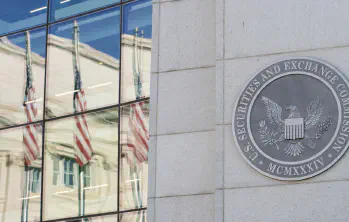Embracing the future: The importance of automation for compliance and operations
Automation across deal flow saves funds time and brings value
Portfolio BI and eflow Global provide automated end to end deal and compliance solutions in partnership, supporting managers’ growing regulatory and investor requirements.
As the financial market tightens, the strain on managers is being felt more than ever. As regulators harden their stances on non-compliance and markets retain their volatility, managers will increasingly need to adopt new approaches to managing data, front and back office activities and compliance and consumer protection in order to navigate the challenges posed by the current economic climate. Part of this process means embracing technological advancement. It is for this reason that PBI and eflow have partnered to provide end to end workflow efficiency and automation for trading compliance and regulatory oversight.
As pressure to reduce costs and streamline operations increases, manual, resource-intensive approaches to operations and compliance are becoming less and less viable. Because of this, we are seeing a trend towards technological adoption by financial firms. Technology can offer not only a means of improving operational workflow and reducing costs, but a more secure method of ensuring consumer protection and market integrity.
Sumit Mahajan, Managing Director and Chief Product Officer at Portfolio BI commented, “The team at Portfolio BI have dissected the continuous and growing burden of requirements managers face and, alongside eflow, can implement a seamless universal solution that genuinely supports managers.” As front and middle office specialists, Portfolio BI have developed market-leading OMS and PMS platforms that offer market-leading execution of transactions and their secure management. Mahajan continued “Our technology optimises operations by seeking out cost-saving new paths which can assist in generating higher revenues. Specialising in process-driven automation produces reliable and accurate operational management tools for firms at a fraction of existing costs.”
Douglas Moffat, Chief Revenue Officer at eflow Global, echoed the importance of embracing automation both to improve compliance and increase revenue. “At eflow, we recognise that the importance of automation is far reaching. By embracing new technologies to automate compliance procedures such as transaction cost analysis, best execution monitoring, transaction reporting and trade surveillance, clients can streamline resource allocation, strengthen their compliance procedures, and reduce the risk of harm to consumers.” This adoption of automated technologies, continues Moffat, does far more than ensure a base-level of compliance. “There is an increasingly strong business case for adopting automated compliance workflows. Automation can help reduce overheads, a key component of winning new mandates in a competitive market.”
The increased use of automated solutions to ensure regulatory compliance aligns with a more general push towards improved consumer protection. The use of technology in market abuse monitoring helps to prevent cases of manipulative behaviour, such as insider trading or front-running. While this naturally helps firms meet their regulatory obligations, it equally helps to maintain market integrity and ensure that consumers are protected from unethical trading practices. The use of machine learning algorithms and data analytics to detect unusual trading activity also improves the accuracy and speed of market abuse detection, reducing the risk of harm to consumers.
The use of technology to ensure best execution and streamline operations and regulatory compliance is a crucial step in aligning with consumer protection and regulatory requirements. By reducing costs, improving accuracy, and preventing market abuse, firms can demonstrate their commitment to protecting consumers and maintaining market integrity, which is essential in the current economic climate.



